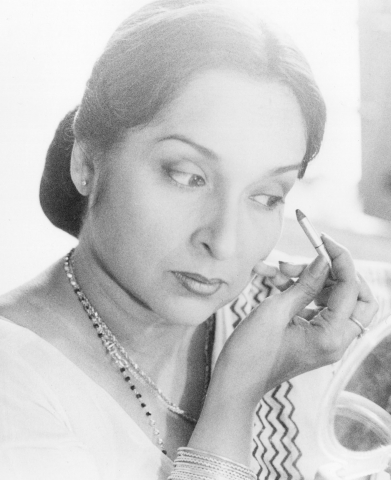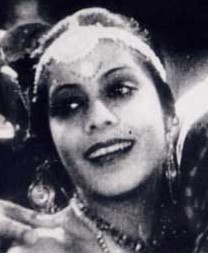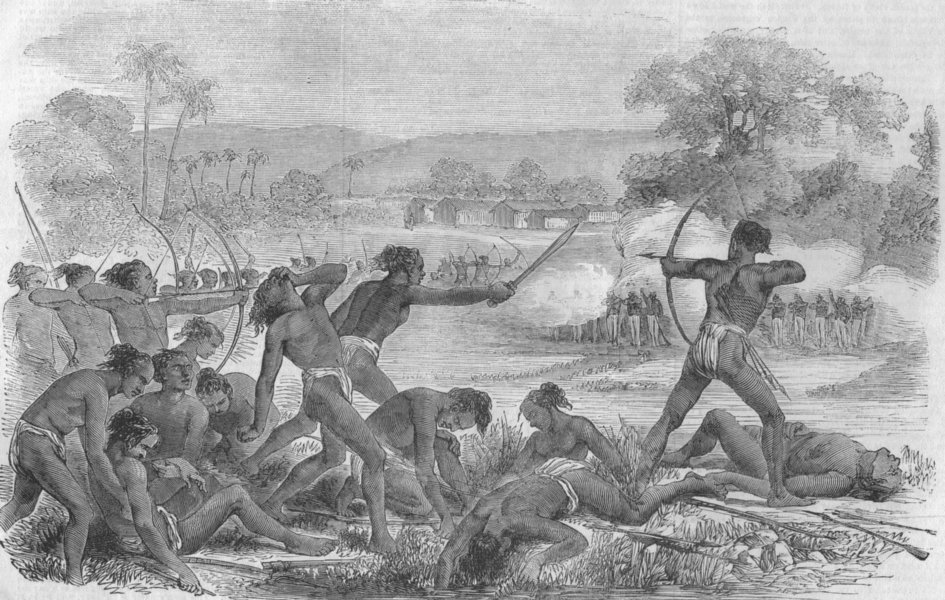|
Mrigayaa
''Mrigayaa'' () is a 1976 Indian historical drama film directed by Mrinal Sen and produced by K. Rajeshwara Rao. It is based on an Odia short story by Bhagbati Charan Panigrahi, called "Shikaar". The film portrayed the relationship between the British colonial government and native villagers, and their exploitation by Indian landlords in 1920s India. It also depicts the friendship between a British administrator, who has a flair for game hunting, and a native tribal, who is an expert archer. The lead actors, Mithun Chakraborty and Mamata Shankar, both made their cinematic debuts through the film. The film score was provided by Salil Chowdhury, while K. K. Mahajan handled the cinematography. At the 24th National Film Awards, ''Mrigayaa'' won two awards—Best Feature Film and Best Actor. It also won the Filmfare Critics Award for Best Movie apart from being nominated for the Golden Prize at the 10th Moscow International Film Festival in 1977. Plot The plot is set in the 1930s ... [...More Info...] [...Related Items...] OR: [Wikipedia] [Google] [Baidu] |
Mrinal Sen
Mrinal Sen (''Beng.'' মৃণাল সেন; 14 May 1923 – 30 December 2018) was an Indian film director, and screenwriter known for his work primarily in Bengali, and few Hindi and Telugu language films. Regarded as one of the finest Indian filmmakers, along with his contemporaries Satyajit Ray, Ritwik Ghatak, and Tapan Sinha, Sen played major role in the New Wave cinema of eastern India. Sen has received various national and international honors including eighteen Indian National Film Awards. The Government of India honored him with the Padma Bhushan, and the Government of France honored him with the Ordre des Arts et des Lettres, while Russian Government honored him with the Order of Friendship. Sen was also awarded the Dadasaheb Phalke Award, the highest award for filmmakers in India. He was one of the few Indian filmmakers having won awards at the big three film festivals viz., Cannes, Venice and the Berlinale. Sen was a self described "private Marxist". Influenc ... [...More Info...] [...Related Items...] OR: [Wikipedia] [Google] [Baidu] |
Mithun Chakraborty
Mithun Chakraborty (born Gouranga Chakraborty; 16 June 1950) is an Indian actor, producer and politician who predominantly worked in Hindi and Bengali language films. He is a former Rajya Sabha Member of Parliament. He is the recipient of three National Film Awards and two Filmfare Awards for his acting performance. Chakraborty made his acting debut with the art house drama ''Mrigayaa'' (1976), for which he won his first National Film Award for Best Actor. Chakraborty played Jimmy in the 1982 film ''Disco Dancer'', which was commercially successful in India and the Soviet Union, the first film in India to gross Rs.100 crore. Besides ''Disco Dancer'', Chakraborty is also remembered for his performance in films such as ''Surakksha'', ''Sahhas'', ''Wardat'', '' Wanted'', ''Boxer'', ''Pyar Jhukta Nahin'', ''Pyari Behna'', ''Avinash'', '' Dance Dance'', '' Prem Pratigyaa'', '' Mujrim'', '' Agneepath'', ''Yugandhar'', '' The Don'', and ''Jallaad''. In 1991, he won the Filmfare Award f ... [...More Info...] [...Related Items...] OR: [Wikipedia] [Google] [Baidu] |
24th National Film Awards
The 24th National Film Awards, presented by Directorate of Film Festivals, the organisation set up by Ministry of Information and Broadcasting, India to felicitate the best of Indian Cinema released in the year 1976. Awards Awards were divided into feature films and non-feature films. Lifetime Achievement Award Feature films Feature films were awarded at All India as well as regional level. For 24th National Film Awards, a Hindi film, ''Mrugaya'' won the President's Gold Medal for the All India Best Feature Film. Following were the awards given in each category: All India Award Following were the awards given: Regional Award The awards were given to the best films made in the regional languages of India. All the awardees are awarded with 'Silver Lotus Award (Rajat Kamal)', a certificate and cash prize. Non-Feature films ;Not Available Awards not given Following were the awards not given as no film was found to be suitable for the award * Be ... [...More Info...] [...Related Items...] OR: [Wikipedia] [Google] [Baidu] |
National Film Award For Best Feature Film
The National Award for Best Feature Film is one of the categories in the National Film Awards presented annually by the Directorate of Film Festivals, the organisation set up by Ministry of Information and Broadcasting in India. It is one of several awards presented for feature films and awarded with the ''Golden Lotus'' (''Swarna Kamal''). The award is announced for films produced in a year across the country, in all Indian languages. , the award comprises a ''Swarna Kamal'', a certificate, and a cash prize of 2,50,000 and is presented to the producer and the director of the film. The National Film Awards were established in 1954 to "encourage production of the films of a high aesthetic and technical standard and educational and culture value" and also planned to include awards for regional films. The awards were instituted as "State Awards for Films" but were renamed to "National Film Awards" at the 15th National Film Awards in 1967. , the award is one of six ''Swarna Kamal' ... [...More Info...] [...Related Items...] OR: [Wikipedia] [Google] [Baidu] |
Mamata Shankar
Mamata Shankar (born 7 January 1955) is an Indian actress and dancer. She is known for her work in Bengali cinema. She has acted in films by directors including Satyajit Ray, Mrinal Sen, Rituparno Ghosh, Buddhadeb Dasgupta and Gautam Ghosh. In addition to being an actress, she is a dancer and choreographer. She was the niece of musician Pandit Ravi Shankar. Her brother, Ananda Shankar, was an Indo-Western fusion musician. Early life and education Mamata Shankar was born on 7 January 1955 to the dancers Uday Shankar and Amala Shankar. She received her training in dance and choreography at the Uday Shankar India Culture Centre, Calcutta under Amala Shankar. Career Shankar made her film debut with ''Mrigayaa'' in 1976, directed by Mrinal Sen. The film won the National Film Award for Best Feature Film for the year. Shankar is married, and runs the Udayan - Mamta Shankar Dance Company, which was founded in 1986, and which travels extensively throughout the world, with the 'Mamata ... [...More Info...] [...Related Items...] OR: [Wikipedia] [Google] [Baidu] |
Sadhu Meher
Sadhu Meher (born in Odisha, India) is an Indian actor, director, and producer. He has performed in both Odia and Hindi films. He primarily began his career in Hindi films such as ''Bhuvan Shome'', '' Ankur'' and '' Mrigaya''. Later on shifted his interest towards Odia films. He is one of the actors who gained prominence in Parallel Cinema in the mid-1980s. He also acted in '' Byomkesh Bakshi'' in the episodes "Aadim Shatru (Part 1 & 2)" and "Chakrant" as Anadi Haldar and Bishupal respectively. He won a National Film Award for Best Actor for '' Ankur''. He was conferred Padma Sri by the Government of India in 2017. Filmography Sadhu Meher also played characters, Anadi Haldar, in the episode "Aadim Shatru (Part 1 & 2)", and Bishupal, in the episode "Chakrant", of '' Byomkesh Bakshi'', broadcast by Doordarshan Doordarshan (abbreviated as DD; Hindi: , ) is an Indian public service broadcaster founded by the Government of India, owned by the Ministry of Information a ... [...More Info...] [...Related Items...] OR: [Wikipedia] [Google] [Baidu] |
Salil Chowdhury
Salil Chowdhury (19 November 1925 – 5 September 1995) was an Indian music director, songwriter, lyricist, writer and poet who predominantly composed for Bengali, Hindi and Malayalam films. He composed music for films in 13 languages. This includes over 75 Hindi films, 41 Bengali films, 27 Malayalam films, and a few Marathi, Tamil, Telugu, Kannada, Gujarati, Odia and Assamese films. His musical ability was widely recognised and acknowledged in the Indian film industry. He was an accomplished composer and arranger who was proficient in several musical instruments, including flute, the piano, and the esraj. He was also widely acclaimed and admired for his inspirational and original poetry in Bengali. The first Bengali film for which Chowdhury composed music was ''Paribortan'', released in 1949. ''Mahabharati'', released in 1994, was the last of the 41 Bengali films where he rendered his music. He is affectionately called ''Salilda'' by his admirers. Career Early influences ... [...More Info...] [...Related Items...] OR: [Wikipedia] [Google] [Baidu] |
10th Moscow International Film Festival
The 10th Moscow International Film Festival was held 7-21 July 1977. The Golden Prizes were awarded to the Hungarian film ''The Fifth Seal'' directed by Zoltán Fábri, the Spanish film '' El puente'' directed by Juan Antonio Bardem and the Soviet film ''Mimino'' directed by Georgiy Daneliya. Jury * Stanislav Rostotsky (USSR - President of the Jury) * Salah Abu Seif (Egypt) * Barbara Brylska (Poland) * Souna Boubakar (Niger) * Valerio Zurlini (Italy) * Michael Kutza (USA) * Toshiro Mifune (Japan) * Vladimir Naumov (USSR) * István Nemeskürty (Hungary) * Yuri Ozerov (USSR) * Ion Popescu-Gopo (Romania) * Humberto Solás (Cuba) * Rene Thevenet (France) * Basu Chatterjee (India) * Suimenkul Chokmorov (USSR) * Milutin Colic (Yugoslavia) Films in competition The following films were selected for the main competition: Awards * Golden Prizes: ** ''The Fifth Seal'' by Zoltán Fábri ** '' El puente'' by Juan Antonio Bardem ** ''Mimino'' by Georgiy Daneliya * Silver Prizes: ** ... [...More Info...] [...Related Items...] OR: [Wikipedia] [Google] [Baidu] |
Santhal Rebellion
The Santhal rebellion (also known as the Sonthal rebellion or the Santhal Hool), was a rebellion in present-day Jharkhand and West Bengal , Eastern India against both the British East India Company (BEIC) and zamindari system by the Santhal. It started on June 30, 1855 and on November 10, 1855, martial law was proclaimed by the East India Company which lasted until January 3, 1856 when martial law was suspended and the rebellion was eventually suppressed by the Presidency armies. The rebellion was led by the four sibling Brothers - Sidhu, Kanhu, Chand and Bhairav. Background The rebellion of the Santhals began as a reaction to end the revenue system of the British East India Company (BEIC), usury practices, and the zamindari system in India; in the tribal belt of what was then known as the Bengal Presidency. It was a revolt against the oppression of the colonial rule propagated through a distorted revenue system, enforced by the local zamindars, the police and the courts of ... [...More Info...] [...Related Items...] OR: [Wikipedia] [Google] [Baidu] |
Bhagbati Charan Panigrahi
Bhagabati Charan Panigrahi (1 February 1908 – 23 October 1943) was an Indian Odia writer and politician. He was a founding member of Netaji's Forward Bloc. He was the founding secretary of Communist Party of India in Odisha. He wrote around a dozen short stories before he was mysterious murdered while he was under arrest by British Police in 1943. He was a close associate of Netaji Subhas Chandra Bose. Literary career Bhagabati Charan Panigrahi, in his short literary career, wrote around 12 short stories. One of his notable short stories was ''Shikaar''. The story captured the life of the tribal communities of Odisha, and the exploitation by British to control and suppress their revolt. The story was made into a film ''Mrigayaa'' (1976) by Mrinal Sen. In 2016, an Odia language play was also written and staged based on the same story. In November 1935, in collaboration with Ananta Patnaik and others, he formed a literary organisation " Nabayuga Sahitya Sansad" (). Very soon it ... [...More Info...] [...Related Items...] OR: [Wikipedia] [Google] [Baidu] |
Samit Bhanja
Samit Bhanja ( bn, শমিত ভঞ্জ; 2 January 1944 – 24 July 2003) was an Indian actor and director known for his work in the Bengali cinema. He joined Rupkar, the theatre group of Sabitabrata Dutta and enacted in several plays in early 1960s. He made his screen debut with Balai Sen's 1965 Bengali film ''Surer Agun''. He is remembered as the male lead, Navin, of the successful Hindi film '' Guddi'', opposite Jaya Bhaduri. In addition to acting in film, he acted in theatre and jatras, and was associated with the Rupkar group theatre. He died in Kolkata at the age of 59. Selected filmography # ''Surer Agun'' (1965) # '' Hatey Bazarey'' (1967) # ''Apanjan'' (1968) - Chheno # '' Pratham Kadam Phool'' (1969) - Bhajahari Manna # ''Parineeta (1969 film)'' - Girin # ''Natun Pata'' (1969) # ''Banajyotsana'' (1969) # '' Aranyer Din Ratri'' (1970) - Hari # ''Rupasi'' (1970) - Balaram # '' Guddi'' (1971) - Navin (as Samit) # ''Janani'' (1971) # ''Atattar Din Pare'' (1971) # ' ... [...More Info...] [...Related Items...] OR: [Wikipedia] [Google] [Baidu] |
Anoop Kumar
Kalyan Kumar Ganguly ( bn, কল্যাণ কুমার গাঙ্গুলী) (born 9 January 1926 – 20 September 1997), better known by his stage name Anoop Kumar ( bn, অনুপ কুমার hi, अनूप कुमार) was an Indian actor who appeared in over sixty-five Bollywood films. Personal life Kalyan was born into a Hindu Hindus (; ) are people who religiously adhere to Hinduism.Jeffery D. Long (2007), A Vision for Hinduism, IB Tauris, , pages 35–37 Historically, the term has also been used as a geographical, cultural, and later religious identifier for ... Bengali family in Khandwa, Central Provinces and Berar (now in Madhya Pradesh). His father Kunjalal Ganguly (Gangopadhya) was a lawyer and his mother Gouri Devi came from a wealthy family. Anoop Kumar was the second-youngest of four siblings, the other three being Ashok Kumar (the eldest), Sati Devi and Kishore Kumar (the youngest). Career Anoop Kumar is best remembered ... [...More Info...] [...Related Items...] OR: [Wikipedia] [Google] [Baidu] |




